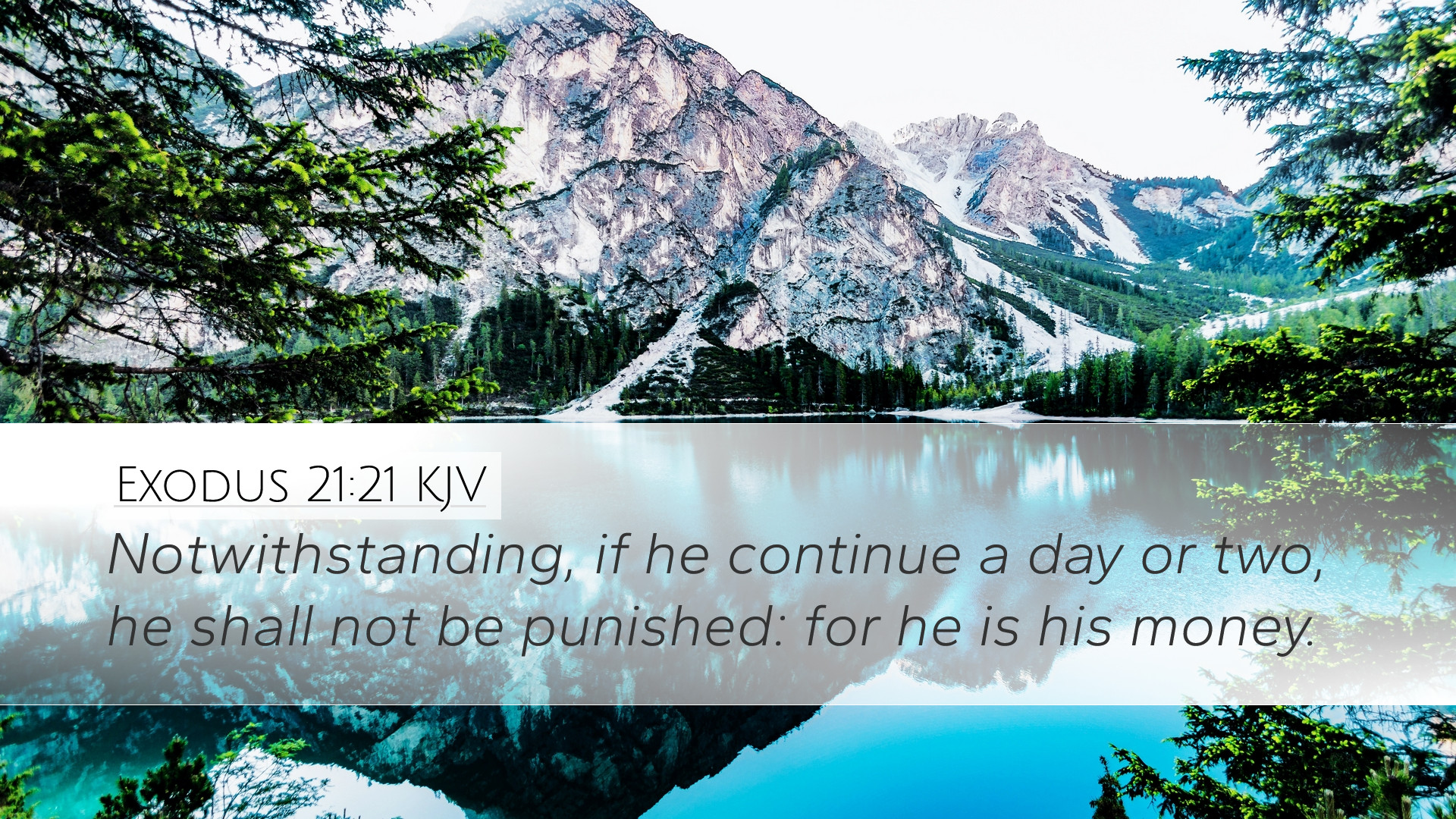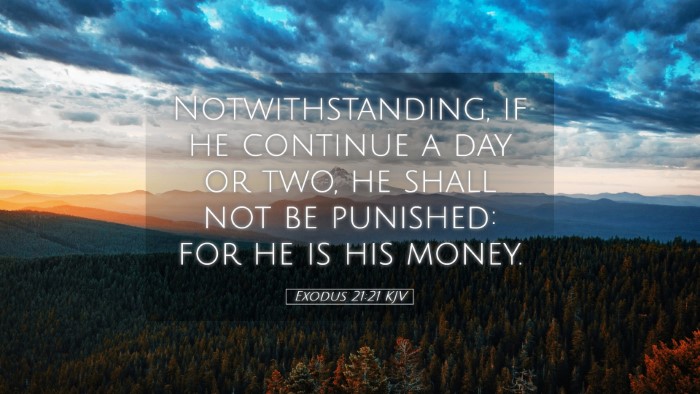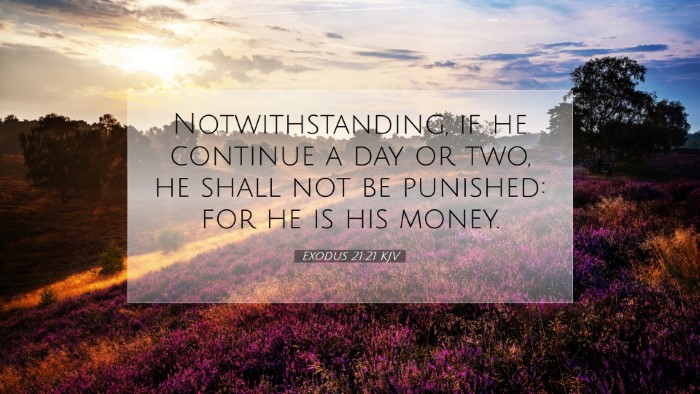Commentary on Exodus 21:21
"But if he survive a day or two, then there is no punishment: for he is his money."
Contextual Overview
The passage in Exodus 21:21 is set within the broader context of the laws governing Israelite society, particularly those regarding personal injury and the treatment of servants. This chapter contains a series of ordinances meant to uphold justice and social order. Understanding the historical and cultural background is vital for interpreting this verse properly.
Exegesis of Exodus 21:21
Meaning of the Verse:
Exodus 21:21 deals primarily with the implications of physical injury caused by a master or employer to a servant or slave. The stipulation that if the servant survives for a day or two without dying removes the obligation for capital punishment for the master, suggesting a distinction between accidental and deliberate harm.
Ethical Implications
This verse raises ethical considerations in the treatment of servants and emphasizes the importance of not taking life lightly. The phrase "for he is his money" points to the economic dimension of slavery in ancient Israel, making it clear that a servant's value was often measured in economic terms. The life of the servant was intertwined with the business interest of the master.
Insights from Commentators
Matthew Henry
Matthew Henry emphasizes that the law's intention is protective. He notes that, although slaves were considered property, the legislation here reflects God's concern for their welfare. Henry suggests that the provisions indicate a form of mercy, allowing masters to avoid severe punishment if the servant’s wound is not fatal, but he also warns against treating servants merely as economic assets. Instead, they should be treated with dignity and respect.
Albert Barnes
Albert Barnes expounds on the legal framework within which these laws were given. He points out that the regulations surrounding personal injury show a significant contrast to surrounding nations and reflect a more humane approach. Barnes highlights that the law establishes that injury, even when unintentional, carries consequences, aligning with the moral requirements of justice. He also notes that the preservation of life, even in the case of a servant, is of paramount importance.
Adam Clarke
Adam Clarke provides a more detailed historical context, explaining the conditions of servitude during biblical times. He suggests that the author of this law sought to instill a sense of accountability in relationships of power. Clarke critiques the harshness implied in the master-servant dynamic but acknowledges that the law serves to monitor and mitigate abuse. He stresses that this law illustrates a principle of protecting the vulnerable within society.
Theological Reflections
Exodus 21:21 also invites theological reflection on the sanctity of life. The acknowledgment of the servant’s life—regardless of social status—affirms that human life is precious and should be valued thus. This aligns with a broader biblical narrative that advocates for justice, mercy, and love. This verse has implications for modern discussions about the treatment of those in positions of servitude or vulnerable situations.
Practical Application
For pastors, students, theologians, and Bible scholars, Exodus 21:21 reminds us to consider:
- Justice and Mercy: Striking a balance between accountability and compassion is crucial in leadership and governance.
- Value of Human Life: Every individual possesses intrinsic worth, regardless of their social or economic status.
- Ethical Leadership: Leaders are called to consider not only their profit but also the welfare of those they oversee.
Conclusion
Exodus 21:21 serves as a critical entry point into understanding biblical justice as it applies to interpersonal relationships, especially regarding power dynamics. Engaging with this text through the lens of various commentaries enriches our understanding and inspires a more equitable approach in our communities today.


